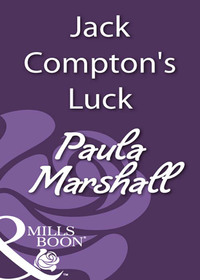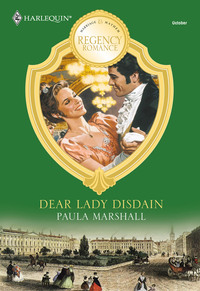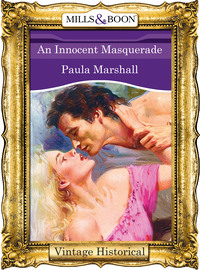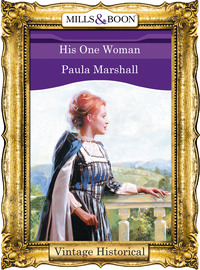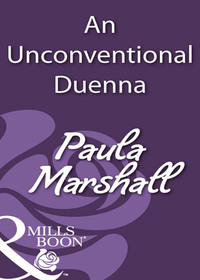
Полная версия
The Devil And Drusilla
Miss Faulkner exclaimed faintly, ‘Oh, I wonder that you could have slept after that. I am sure that I couldn’t have done.’
‘Ah, but Mrs Faulkner is made of sterner stuff, are you not, Mrs Faulkner?’
Was there the usual faint tinge of mockery in his comment? Drusilla did not know. Perhaps not, because after he had leisurely demolished a muffin and the clock had ticked on in the silent room, Devenish said, ‘Would I be considered to be grossly intrusive if I asked to be allowed to visit your room so that you might show me exactly what you saw—and where?’
‘Or what I thought I saw,’ said Drusilla challengingly. ‘For I believe that you may be of the opinion that I might be indulging in hot air and supposition.’
‘Oh, you don’t think that, surely, sir?’ exclaimed Giles. ‘Why, Dru is the most sensible women I know—indeed, I would dare swear she is the only sensible woman I know.’
Devenish’s beautiful mouth twitched. Miss Faulkner said aggrievedly, ‘You want manners, Master Giles, and, as I have often said, if you are not to go to university, then a strict tutor ought to be employed to teach you the discipline you would otherwise have learned there.’
‘You interest me, Miss Faulkner,’ remarked Devenish. ‘I would be happy to learn to which university you refer. None of those with which I am acquainted had much to do with teaching their undergraduates any form of discipline—quite the contrary.’
Giles threw him a grateful glance. Miss Faulkner, who was not sure whether she had been complimented or insulted, gave a hesitant, worried smile. Seeing her discomfort, Drusilla surveyed Devenish with a measuring, judgmental eye, and said coolly, ‘Well, one thing is plain, m’lord, after that remark Giles would do well not to come to you to learn good manners—or perhaps Earls are exempt from them.’
‘Oh, my dear,’ gasped Miss Faulkner, ‘I am sure that Lord Devenish did not mean anything wrong by what he said.’
‘Oh, I am sure that he did,’ retorted Drusilla. ‘Did you not, m’lord?’
Her own daring in thus reproaching him for mocking poor Cordelia struck Drusilla when it was far too late to retract anything which she had said. She waited for the cutting riposte which was sure to follow.
It didn’t. Instead Devenish rose from his chair, walked over to where she sat and lifted her hand to kiss it.
‘You are right to rebuke me,’ he said, his voice gentle. ‘I have grown too accustomed to using my tongue to cut down those around me and who often feel unable to reply because of their lower rank. I must cease the habit.’
He turned to the astonished Miss Faulkner who stared at him, her mouth agape. ‘Pray forgive me,’ he asked, bowing to her, ‘for I spoke ungallantly to you—and not for the first time. I promise not to do it again.’
‘Oh, it was nothing, nothing at all, m’lord.’
‘Ah, but it was. It was most wrong of me. And now, ladies, you will lead me to the room from which Mrs Faulkner saw—what she saw.’
The smile he gave then was his dazzling one. Drusilla, who was already overset because of the sensation which his kissing her hand had created, found that she was quivering with excitement. She told herself that this was partly relief because he had not taken offence at her rebuke, but she knew that she was lying.
Well behaved or ill behaved, he was having the most profound effect on her. Worse, however much she told herself to ignore it, she was unable to do so. All the way up to her room she lectured herself—in vain.
She watched him look around it. It was a lady’s bedroom in splendid order and furnished in the most perfect taste. Devenish walked to the window, bidding her to stand beside him—Miss Faulkner was acting as their chaperon and hovered nervously behind them as Drusilla told her tale.
‘And after they had crossed the lawn they went that way,’ she ended, pointing to the steps down which the man and the woman had disappeared.
‘Which leads towards—where? Remind me, we have turned so many times since I entered Lyford that I have lost my bearings.’
‘Well, nowhere, really. I suppose that the nearest habitation in that direction is Marsham Abbey, Mr Harrington’s place. There is a footpath across the fields which leads to it—but it is rarely used these days. It also runs in the opposite direction, but since Swain’s Hall was pulled down it goes nowhere, because the path to the highway beyond it has disappeared through lack of use.’
‘I see.’ After that Devenish fell silent. Drusilla had been right when she had said that what she had seen had been unremarkable, and would have been unremarked—save to her housekeeper—had it not been for the sheep on the altar.
‘Does Harrington graze sheep on the Abbey’s fields?’
‘Oh, yes. But others around here graze them on their fields, including Farmer Ramsey—and you, of course.’
‘Of course,’ he echoed, and laughed. ‘You are a shrewd lady, Mrs Drusilla.’ He lowered his voice a little and asked, ‘Did your husband find you so? And did your husband mind your sharp tongue?’
‘Oh, I rarely had occasion to use it on him, m’lord.’
He laughed. ‘Oh, so you reserve it for my deficiencies. I suppose that I do deserve it more. He was young, was he not?’
‘Not quite twenty-five when he died.’
Devenish was grateful that the opportunity had been given him to ask these questions without seeming over-curious.
‘And you had not long been married, I collect. I suppose, then, that you and he were rarely apart, so that his disappearance must have come as a great shock to you.’
‘Oh, yes, but not so great a shock as his untimely and dreadful end.’
‘And while he was alive, neither you nor he ever saw strangers in your grounds?’
‘No,’ Drusilla answered a little sharply, for she was not sure where this questioning was going—nor why Devenish was engaging in it.
But something, somehow, in the quizzical look which he then gave her jogged her memory.
‘Except…’ she began slowly, and then stopped. ‘No, it could not be related to this.’
‘Except,’ Devenish mused, his bright blue eyes hard on her. ‘I do dislike excepts—when they lead nowhere, I mean. They intrigue me, and for the rest of the day I am more bad-tempered as well as being ruder than ever, I fear. Pray finish and do not condemn me to that—you would not like it, and consequently I should feel the edge of your tongue!’
‘Very well. He said one day, about nine months before he was found dead, that he was surprised that the path to the Abbey was being so heavily used, and that it must be at night, since he had never seen anyone on it during the day time.
‘He told me that he would investigate the matter as it seemed rather odd. But nothing further came of it other than that he had spoken to Mr Harrington of it and he had assured him that he must be mistaken. Two of his gardeners used it. And that was that. The path had become worn, he said, and it did not need heavy use to cut it up.’
‘Your husband never spoke of it again?’
‘No, never. I am sure that it was simply one of Jeremy’s whim whams—he was given to them. His father was the same, wasn’t he, Cordelia?’
‘Oh, yes. He had the oddest fancies which disappeared as soon as made, you know. Why, I remember old Mr Faulkner swearing that there were strange goings-on in the countryside around Lyford, but since his mind became very feeble before he died, no one thought anything of what he said.’
Another dead end. He could scarcely believe that the whim whams of the Faulkner men had any connection with dead servant girls and a sheep on an altar.
Except—and it was a good except, he thought wryly—that Jeremy Faulkner had died a strange and unexpected death. Like the sheep.
He dared pursue the matter no further even although it enabled him to stand next to Mrs Drusilla Faulkner and admire her pure and perfect profile. He dared swear that—like old Mr Faulkner—he was running mad to be so occupied by the charms of a country widow. Rob would be sure to twit him when he returned home.
All the way back to Tresham Hall what disturbed him the most was that it was not only her looks and figure which charmed him, but her ready, rebuking tongue. Who would have thought that such a gentle-seeming creature would be so morally fearless?
Rob met him in the stable-yard—and began to tease him immediately—and to warn him off.
‘So, how was the pretty widow, Hal? Not so overset as that companion of hers, I dare swear.’
‘No, not at all.’
‘And did you find her in looks?’
‘Why this inquisition, Rob? What point are you trying to make.’
‘A serious one, and I advise you to take what I am about to say equally seriously. This is a good woman whom you are beginning to pursue, not one of the barques of frailty who haunt London, and may be regarded as rightful prey. It would be wrong of you to treat her as a pretty toy to exploit in order to reduce the boredom of country living. You must not trifle with her affections. To do so would be most unworthy of you.’
‘How many moral guardians must a man acquire in one short afternoon before he is allowed to make his own judgements?’ Devenish murmured enigmatically. ‘The world and his wife are determined to have me turn parson, I see. Yes, I found Mrs Faulkner in looks, but it is not her looks which intrigue me. I leave you to discover what does—you might as well have something concrete to worry about rather than simply engaging in pious whim whams about my behaviour.
‘And speaking of whim whams, tell me this. You have lived here these past ten years. Have you observed any whim whams in the behaviour of the Faulkner father and son?’
‘Of the father, yes. He was light in the attic towards the end of his life. Of the son, no. He seemed a down-to-earth fellow to me, quite unlike his father.’
‘And tell me another thing before we adjourn. Were there any persons recorded as missing during the lifetime of old Mr Faulkner—or is that simply a phenomenon of the past few years?’
If Rob thought that Hal was engaging in whim whams himself he did not say so. He had too much respect for his employer’s intellect.
‘Not that I know of.’
‘And strange goings-on in the countryside, you have heard nothing of that?’
Rob shook his head. ‘Not until the servant girls began to disappear, and the two men of whom we spoke. Why?’
‘Nothing. Like my moral sense, my curiosity is light-minded and frivolous—as you well know. Only people are telling me different stories about the same thing.’
He did not elaborate, but left Rob looking after him, wondering what Devenish was up to now. Rob sometimes thought that perhaps Devilish was not a bad nickname for his friend, even though he knew that it was undeserved.
What was puzzling Devenish was why Drusilla and Cordelia Faulkner—who both struck him as possessing souls of simple truth—should believe that Jeremy Faulkner engaged in whim whams like his father’s, whilst Rob, that man of sense, did not. There must be a sensible answer to that, and one which he would endeavour to discover.
The advantage being that whilst he did so he could further his acquaintance with Jeremy’s widow.
Конец ознакомительного фрагмента.
Текст предоставлен ООО «ЛитРес».
Прочитайте эту книгу целиком, купив полную легальную версию на ЛитРес.
Безопасно оплатить книгу можно банковской картой Visa, MasterCard, Maestro, со счета мобильного телефона, с платежного терминала, в салоне МТС или Связной, через PayPal, WebMoney, Яндекс.Деньги, QIWI Кошелек, бонусными картами или другим удобным Вам способом.


